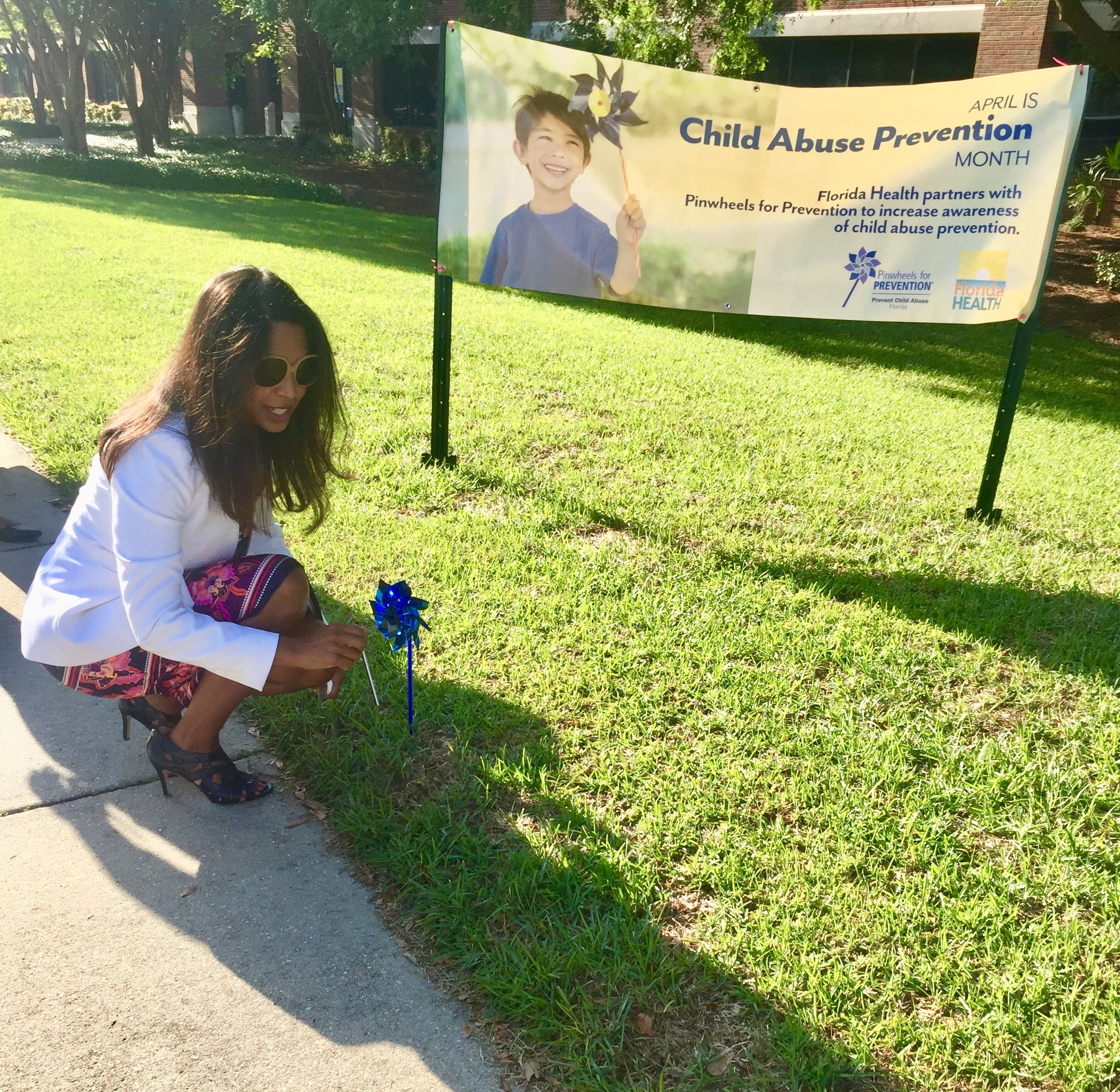It's a New Day in Public Health.
The Florida Department of Health works to protect, promote, and improve the health of all people in Florida through integrated state, county, and community efforts.
Florida Health Recognizes National Child Abuse Prevention Month
April 12, 2018
Contact:
Communications Office
NewsMedia@flhealth.gov
850-245-4111
force line break in cascade
 State Surgeon General and Secretary Dr. Celeste Philip plants a pinwheel at the department’s Pinwheels for Prevention recognition event.
State Surgeon General and Secretary Dr. Celeste Philip plants a pinwheel at the department’s Pinwheels for Prevention recognition event.
force line break in cascade
Tallahassee, Fla. — The Florida Department of Health is proud to join the state in recognizing April as National Child Abuse Prevention Month. Pinwheels are the national symbol for child abuse prevention and serve as a reminder of the safe and nurturing environment desired for every child. Pinwheels for Prevention, coordinated by Prevent Child Abuse (PCA) Florida, Ounce of Prevention Fund of Florida and the Florida Department of Children and Families, is Florida’s statewide campaign that includes promotion of child abuse prevention.
“Protecting the health of Florida’s children is one of our primary goals, and we must do all we can to ensure the well-being of every child,” said State Surgeon General and Secretary Dr. Celeste Philip. “When a child’s needs are met within the first 1,000 days of life they are more likely to live longer, healthier lives. I encourage everyone to get engaged and find ways to support children and parents of young children in your community.”
Child abuse and neglect includes abandonment, physical or emotional harm, sexual abuse or exploitation by a parent or caretaker. Child abuse is one aspect of what constitutes adverse childhood experiences (ACEs), which can have a lasting negative impact on an individual’s health for the rest of their life. Children who have experienced many ACEs are more likely to experience common adult life-threatening health conditions like obesity, heart disease and substance abuse. Addressing ACEs at the community level can contribute to improvements in health outcomes over time.
The department’s Children's Medical Services Child Protection Teams (CPTs) are medically-directed, multidisciplinary, community-based programs, which provide assessments that supplement the child protective investigation activities of DCF and designated sheriff offices. Each CPT is led by a board-certified physician in pediatrics or family medicine with expertise in child abuse and neglect. CPT staff also provide training sessions for DCF, local sheriff’s office staff, emergency room and other non-medical personnel and other local agencies responsible for the detection or providing child protective services.
Through the department’s Florida Healthy Babies Initiative, all 67 county health departments are engaged in identifying infant mortality disparities in their community and working with local partners to address these disparities through new or existing programs. This initiative represents the collective strength of these partners working together to improve the health and well-being of all Floridians.
If you suspect that a child is being abused or neglected, please call the Florida Child Abuse Hotline at 1-800-96-ABUSE (1-800-962-2873).
To learn more about the department’s Child Protection Teams, please click here.
About the Florida Department of Health
The department, nationally accredited by the Public Health Accreditation Board, works to protect, promote and improve the health of all people in Florida through integrated state, county and community efforts.
Follow us on Facebook, Instagram and Twitter at @HealthyFla. For more information about the Florida Department of Health please visit www.FloridaHealth.gov.



Connect with DOH